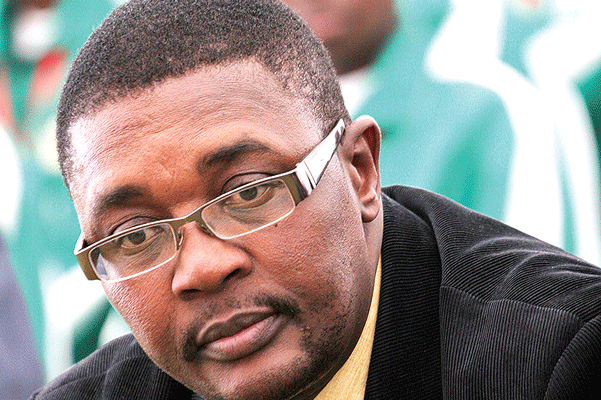
As Tourism and Hospitality Industry minister Walter Mzembi hops from one continent to another seeking endorsement for a top post in the United Nations family, his boss President Robert Mugabe is acting in ways that seek to undo his efforts.
BY NDAMU SANDU

Mzembi is gunning for the UN World Tourism Organisation (UNWTO) secretary-general’s post to replace Jordanian Taleb Rifai who is leaving the post next year. On the other hand, Mugabe is plotting an unceremonious pull- out and split of the world body.
Mzembi has been endorsed by Africa for the top post and has been visiting Asian and western capitals to garner support.
But Mugabe has made himself the unofficial spokesperson in Africa’s push, demanding veto powers in the UN Security Council threatening a continental pull- out.
Arriving from the UN meeting last Saturday, Mugabe accused the United States, France and Britain of acting as a stumbling block to reforms in the international body.
“Britain, France and the US are resisting UN reforms, so we say; the UN is strengthened by outside countries. They should not cry when we unite to form our own organisation with China, India, Russia and other countries and leave them alone,” Mugabe said.
Calls for UN Security Council reforms started over a decade ago, growing louder when Mugabe assumed the rotational chairmanship of the African Union last year.
- Chamisa under fire over US$120K donation
- Mavhunga puts DeMbare into Chibuku quarterfinals
- Pension funds bet on Cabora Bassa oilfields
- Councils defy govt fire tender directive
Keep Reading
Under the Ezulwini Consensus of 2005, the African Union said the continent should have not less than two permanent seats with all the prerogatives and privileges of permanent membership including the right of veto and five non-permanent seats.
Former Finance minister Tendai Biti said Mugabe’s remarks were not surprising as Zanu PF was a captured organisation full of contradictions.
“People here are being fed by WFP, Unicef is giving textbooks in schools, WHO through the Global Fund is looking after the country’s health system and UNDP is responsible for development programmes. If you pull out, what do you do?” Biti said.
He said Zimbabwe was struggling to pay its subscriptions to Sadc and the African Union and the two organisations were sustained by financial assistance from the west.
Biti said those pushing to pull out of the UN were from “tinpot organisations, run by tinpot dictators who think they can make global decisions using tinpot logic”.
The UN and its specialised agencies have been supporting Zimbabwe over the years.
Finance minister Patrick Chinamasa and central bank governor John Mangudya are running round the clock to ensure that Zimbabwe pays the combined $1,8 billion debts to the World Bank, International Monetary Fund (IMF) and the African Development Bank.
Clearing of the debt will assist Zimbabwe secure cheap lines of credit from the international financial institutions to reboot the economy. IMF and the World Bank are some of the UN’s specialised agencies.
In a draft document in support of Zimbabwe getting turnaround assistance support under the International Development Assistance, the World Bank said government had demonstrated a commitment to a major change in the policy environment after a period of disengagement from the bank lending.
“Indeed, today’s ‘perfect storm’ of economic and climatic headwinds have led to the spread of economic realism among many stakeholders, suggesting now is a formidable time for the bank and donors to re-engage Zimbabwe to catalyse real change,” the World Bank said in a document titled: International Development Assistance Turnaround Eligibility Note for Zimbabwe.
The bank said a lengthy isolation from the international community restricted aid flow, resulting in a build-up of arrears to multilateral and bilateral partners.
But Mugabe is known for contradicting the actions of his government. In 2005, Mugabe attacked IMF as inconsequential to the needs of developing countries some few hours after the global lender had spared the axe on Zimbabwe.
“Well, the IMF has always never been of real assistance to developing countries. It is wielded by big powers; we have never been friends of the IMF and therefore in the future we shall never be friends of the IMF,” Mugabe said in Cuba en route to the UN meeting.
This came after then central bank chief Gideon Gono had mobilised $120 million to pay part of the IMF’s debt, a move which ensured that Zimbabwe remained a member of the Bretton Woods institution. The payment came a week before the IMF board was supposed to convene and give Zimbabwe the boot.











